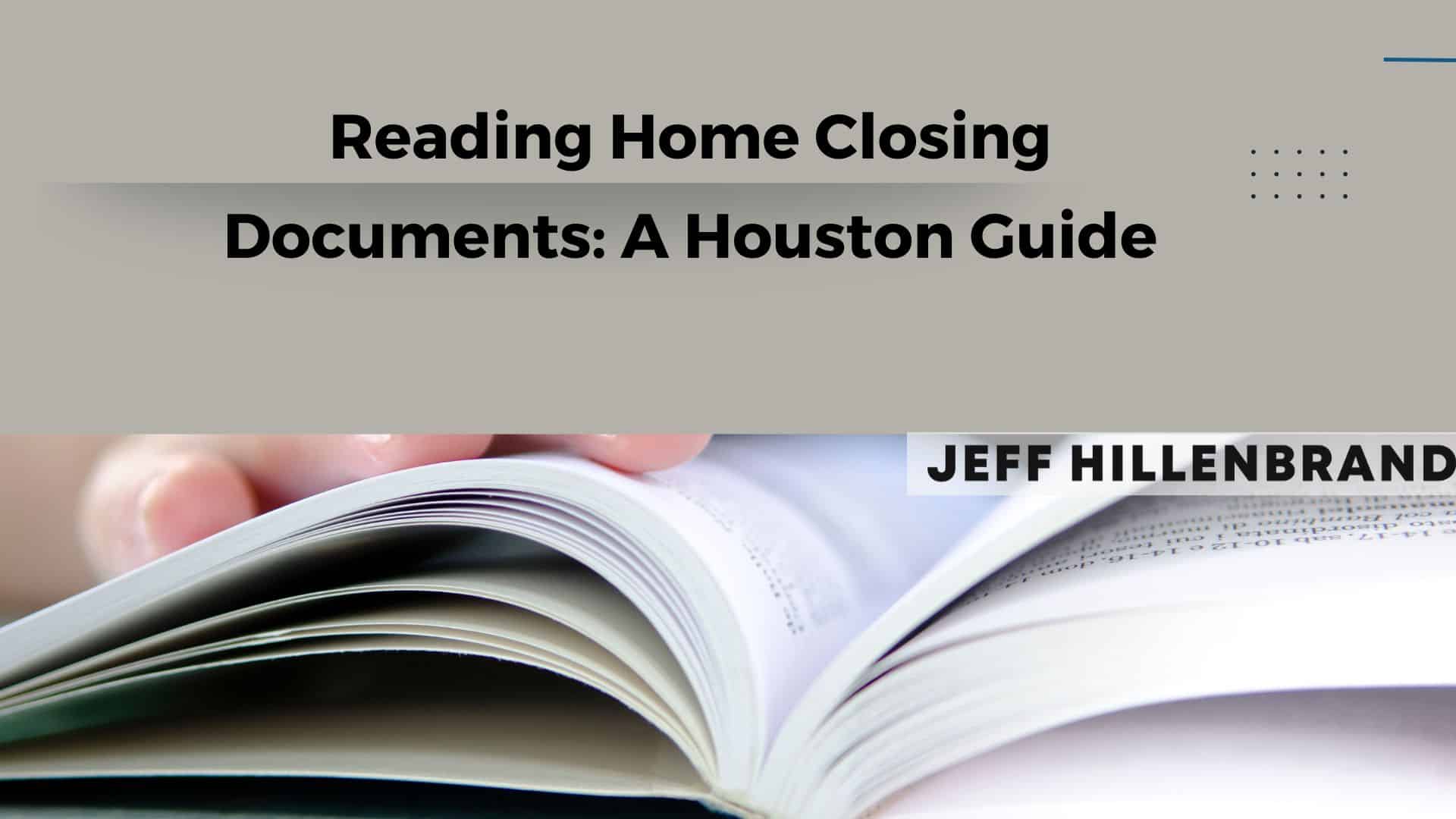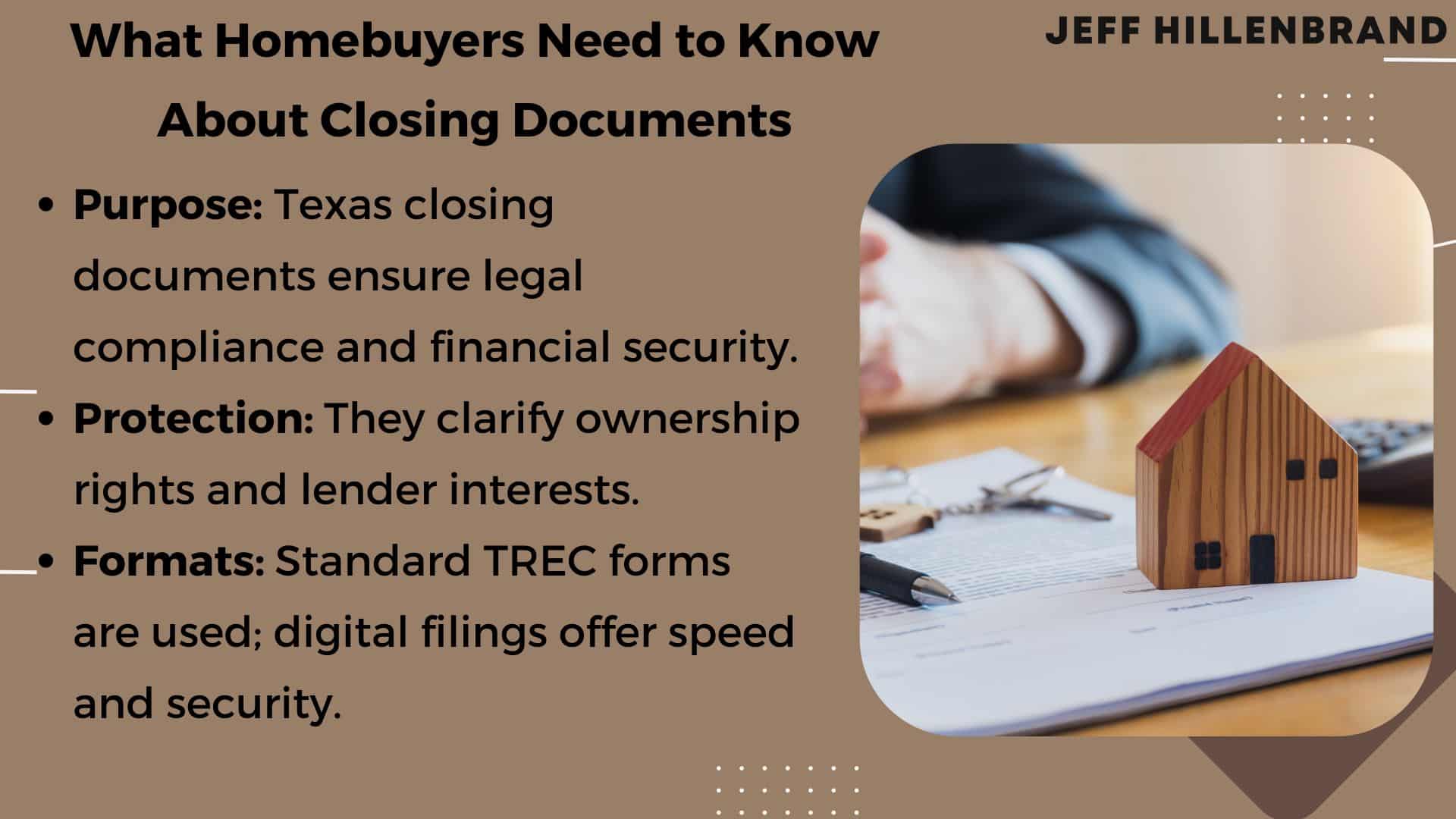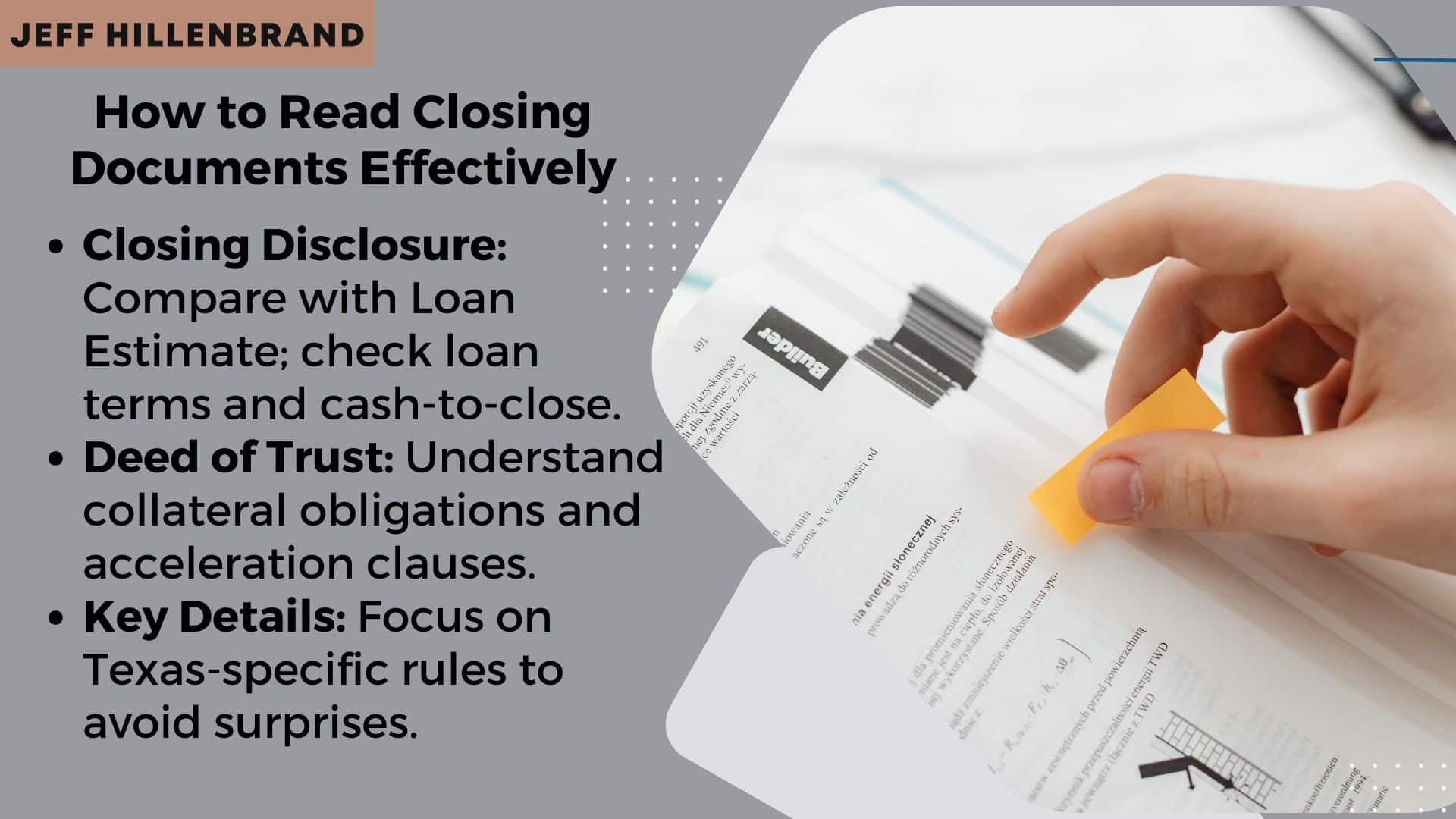
Did you know 68% of Harris County homebuyers feel confused about real estate paperwork? At New Homes Houston Texas, we understand how overwhelming buying a home can be. Buyers often face many forms with terms they don’t know, like title insurance riders and Texas disclosure statements.
It’s not just helpful to understand these documents; it’s essential for protecting your investment. Houston’s market and state laws have unique rules that differ from other places. Our team helps make complex legal language clear for Harris County residents.
This guide will cover each important page you’ll see during the buying process. We’ll point out red flags, explain common clauses, and talk about Texas property code timelines. With our help, you’ll feel confident on settlement day, not uncertain.
Key Takeaways
- Harris County requires specific addendums not found in other Texas counties
- Texas disclosure forms have strict 72-hour review deadlines
- Loan estimates and closing disclosures must match within 10% variance
- Title insurance policies vary significantly between Houston neighborhoods
- Local flood zone designations impact multiple sections of your paperwork
- Notary requirements differ for in-person vs remote closings in Texas
What Homebuyers Need to Know About Closing Documents

Buying a home in Houston means dealing with a lot of paperwork. Texas laws play a big role in this process. We’ll explain the important parts of these documents and how Harris County likes them. This will help you feel more confident when you close your deal.
Purpose of Closing Paperwork in Texas Transactions
Texas real estate laws have rules to protect everyone involved. These documents make sure all parties follow the law and keep their money safe.
Legal Requirements Under Texas Property Code
The Texas Property Code has three main rules for closing documents:
- 3-day rescission period for certain loan types
- Full title search and chain of ownership verification
- Disclosure of existing liens or encumbrances
These rules help avoid unexpected problems. For example, in Harris County, title companies must check if property boundaries match the deed before closing.
Protection for Buyers and Lenders
Closing documents protect both buyers and lenders:
- Buyers get clear ownership rights through warranty deeds
- Lenders secure their interests with recorded mortgages
Texas law also requires specific language in deeds of trust. This makes sure both sides know what happens if they default.
Common Document Formats Used in Harris County
Harris County uses standard templates to make things easier. These templates follow state and local rules.
TREC-Promulgated Contract Forms
The Texas Real Estate Commission (TREC) offers required templates for:
- Purchase agreements
- Seller’s disclosure statements
- Lease-purchase contracts
Using TREC forms helps follow state laws. We check these documents for the 2024 updates before clients sign.
Electronic vs Paper Filings
Harris County started accepting digital recordings in 2020. While paper is okay, digital filings are faster and more secure.
- Faster processing (24-48 hours vs 5 business days)
- Secure digital audit trails
- Automatic cloud backups
Many title companies now use both paper and digital. Important documents like deeds are recorded physically, while other papers are filed digitally.
How to Read Closing Documents Effectively

Learning to review closing papers is key to avoiding surprises in your Houston home purchase. We help buyers understand the documents to spot important details. This includes costs and legal aspects specific to Texas.
Breaking Down the Closing Disclosure
This five-page form outlines your loan details and settlement costs. It’s important to compare it with your initial Loan Estimate. This way, you can catch any differences in fees or interest rates.
Loan Terms Section Analysis
Look closely at three main parts of the loan terms table:
- Interest rate type (fixed vs adjustable)
- Prepayment penalties
- Balloon payment requirements
In Texas, lenders must tell you about rate change limits for adjustable-rate mortgages. Make sure these limits match your agreement.
Calculating Cash-to-Close Amounts
The “Calculating Cash to Close” table shows what you’ll pay at closing. Be on the lookout for:
- Unapproved fee increases over 10%
- Credits from seller concessions
- Escrow account funding needs
For easier comparisons, use the “Alternative Calculating Cash to Close” table.
Reviewing the Deed of Trust
This document legally ties your property to the loan. It’s important to understand the default rules and what the lender can do if you default.
Identifying Collateral Obligations
The deed outlines what you must do to keep the property. In Texas, you must:
- Have windstorm insurance in coastal areas
- Have flood coverage in high-risk zones
- Have enough liability coverage in your homeowner’s policy
Acceleration Clauses Explained
These clauses let lenders demand the full loan back if you default. Texas rules require:
- A 30-day chance to fix payment issues
- A 20-day notice before foreclosure
- Public notice of the auction
Also, watch for clauses that link other debts to your mortgage.
Key Components of Houston Closing Documents

Houston real estate deals need a close look at local paperwork. Knowing these documents helps buyers steer clear of expensive mistakes. We’ll look at two important parts that are special to Harris County.
Texas-Specific Settlement Statement
Harris County has its own settlement statements, different from the national ones. These show who owes what money in a split-column way.
Comparing Seller/Buyer Columns
Make sure to check these three things in the dual-column layout:
- Closing cost splits (left = seller, right = buyer)
- Local drainage fees (special to Houston)
- Real estate agent commission splits
Prorated Tax Calculations
Texas law says taxes should be split based on the closing date. Harris County figures this out by:
- Annual tax amount ÷ 365 days = daily rate
- Seller’s days of ownership × daily rate
- Then, a credit is given to the buyer’s costs
Title Insurance Policy Details
Houston’s complex geology and flood risks make title checks very important. Always ask for full policy copies 72 hours before closing.
Coverage Exceptions to Check
Look closely at these common Harris County exceptions:
- Underground utility easements
- Historic zoning rules
- Unrecorded mineral rights deals
Endorsements for Flood Zones
New FEMA flood maps from 2023 impact 18% of Houston homes. Key endorsements include:
- Elevation certificate checks
- Stormwater drainage system promises
- Post-construction survey needs
Understanding Legal Terminology in Contracts
Real estate contracts in Houston need you to know legal terms that protect both sides. Buyers and lenders have rights and duties. We’ll break down key phrases and their roles in Texas property deals.
Essential Contract Clauses
“Time is of the essence” meaning
This clause sets strict deadlines for contract steps. Missing a deadline by just one day can cancel the deal. Texas courts stick to these timelines unless both sides agree to extend in writing.
Earnest money provisions
Houston contracts often ask for 1-3% of the purchase price as earnest money. There are three main rules:
- Funds stay in escrow until closing
- Buyers might lose deposits for breaking the contract
- Texas law needs clear rules for losing deposits in writing
Mortgage-Related Definitions
Escrow account requirements
Most Houston lenders want escrow accounts for taxes and insurance. Texas says there must be at least two months’ worth of payments in these accounts. Lenders check these accounts every quarter and change contributions each year.
Prepayment penalty terms
Some Texas loans have fees for paying off early. There are a few common ways these penalties work:
- 3-2-1 sliding scale penalties over three years
- A fixed percentage of the remaining balance
- Federal rules stop prepayment penalties on most home loans after five years
Houston-Specific Closing Considerations
Buying a home in Houston means you need to know about local rules. Things like recording rules and flood zones can affect your closing. Here are key things to check before you buy.
Harris County Recording Requirements
Harris County has strict rules for recording documents. These rules help keep everything legal and protect property rights in the Houston area.
Transfer Tax Calculations
Texas charges a transfer tax of $2.70 for every $500 of property value. For a $300,000 home, the tax is:
- $1,620 total transfer tax
- Split equally between buyer and seller
- Paid through escrow at closing
Use the county’s online fee calculator to check your tax. Also, remember to submit payment receipts digitally within 24 hours of recording.
Notarization Rules
New rules in the county mean:
- Original signatures on all deed documents
- Government-issued photo ID verification
- Simultaneous witness signatures for power-of-attorney filings
Book mobile notary services early. Same-day requests can be delayed, mainly during busy times.
Flood Zone Documentation
Houston’s flooding risks mean you need the right flood certification. This protects lenders and homeowners. It also affects insurance costs and property value.
Reviewing LOMA Certificates
Letters of Map Amendment (LOMA) can remove properties from high-risk zones. Here’s how to check:
- Access FEMA’s Mapping Information Platform
- Enter property coordinates or address
- Compare results with your surveyor’s report
Getting a LOMA can lower your annual insurance by about $1,200 in Harris County.
Elevation Certificate Verification
Elevation certificates need:
- Professional engineer’s seal
- Benchmark elevation comparisons
- Drainage pattern analysis
We check these against FEMA’s flood maps. Any mistakes need fixing right away before closing.
Step-by-Step Document Review Checklist
We’ve made the closing process easier with our 24-point verification system. It’s used by Houston homebuyers. This checklist helps find mistakes before they cost a lot, which is very important in Harris County.
1. Verify Personal Information Accuracy
Small mistakes can lead to big legal problems. Double-check these important details:
- Full legal names matching government-issued IDs
- Current mailing addresses for all parties
- Correct Social Security numbers
We compare every detail with your loan application and title documents. Last month, we found 12% of errors in client files during final walkthroughs.
2. Confirm Loan Terms Match Pre-Approval
Make sure these numbers match:
- Annual Percentage Rate (APR) against initial Loan Estimate
- Payment schedule dates and amounts
- Prepayment penalty clauses
Texas law says you can be off by 0.125% APR from the original quote. Our team alerts you to any bigger differences.
3. Check Property Description Validity
Harris County uses special surveys that need to be checked:
- Match legal description to CAD records
- Confirm flood zone designation accuracy
- Verify easement disclosures
We stopped three closings because MLS listings got property boundaries wrong. Always check against official plats.
Let Us Help With Your Houston Closing
Dealing with Houston real estate closings needs local experts. Our team has 14 years of experience with Harris County transactions. This means you can trust us with every step.
- Verifying property descriptions match Harris County records
- Cross-checking loan terms against Texas disclosure laws
- Ensuring compliance with local flood zone documentation rules
Call (954) 821-4492 for same-day document reviews. We find mistakes others miss. This includes wrong legal descriptions and outdated title endorsements.
Our Houston-based specialists speak your language, literally and legally. Whether you’re new to buying or an experienced investor, we adjust our review to fit your needs. Let’s make your closing process smooth.
Conclusion
Thorough document review is key in Houston’s real estate market. Always check every detail, from the survey plat to loan terms, before signing. Make sure the legal property description matches the survey and confirms flood zone status through Harris County’s Flood Warning System.
When applying for homestead exemption in Texas, pay close attention. Your closing package should include Form 50-114. Also, review tax prorations carefully. Title insurance needs to cover your property’s value and any recorded easements.
We focus on explaining escrow instructions and prepayment penalties clearly. We help clients understand Harris County’s recording fees and transfer tax calculations. Keep digital copies of all signed documents for future use or refinancing.
Successful closings require understanding Texas contracts and local rules. Work with experts who know Houston’s neighborhoods and laws. For personalized help, contact us with your transaction details.




